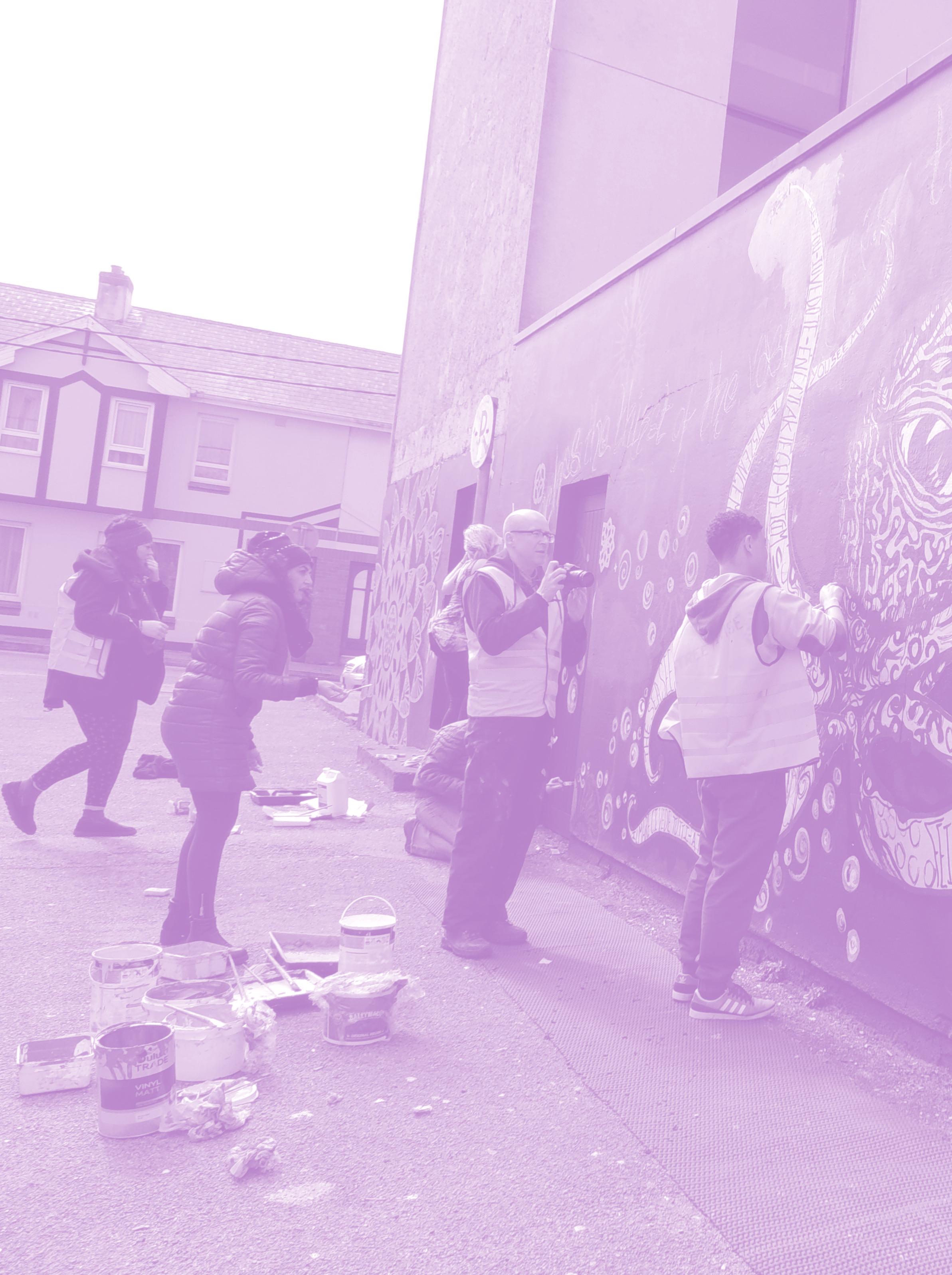
2 minute read
Evaluation and Monitoring Phase
Evaluation & Monitoring Phase
Participants need to be given opportunities to express their thoughts and feelings when they are taking on new challenges. Isolation from support networks can lead to barriers that could prevent a participant accessing help or advice if they need it. If a participant is experiencing difficulties it is important that they can ask for help. Effective evaluation and monitoring processes create cultures of openness and transparency throughout the lifetime of a project.
Advertisement
This table aims to assist the design and implementation of effective evaluation and monitoring strategies for some accommodation settings of international youth projects. The reason for having a focus on the accommodation types is because this is an area that can present significant risks for participants.
Activity
Student Exchange
Group Youth Exchange
VET Project Accommodation Setting
Host family
Communal accommodation
(hostel/residential centre)
Independent or shared accommodation Evaluation & Monitoring
Regular contact with the student to check in on their welfare.
Call to the host family house to monitor the environment and meet the family.
Formal evaluation of the host family’s experience – to ensure all aspects were appropriate and to ensure that if concerns emerged they were fully responded to.
Check in with the student’s own family to assess their welfare throughout the project.
Meet regularly with the participants to provide opportunities for discussion and feedback on the living circumstances.
Follow up on any concerns that are raised.
Informal monitoring is carried out by walking through the environment at various times maintaining appropriate ratio requirements.
Encourage the participants to talk openly about their experiences and involve them in problem solving low-level difficulties that may emerge. These are good learning experiences for them to work through.
Use formal and non-formal evaluation techniques to harvest the learning from their experiences.
Check the location of accommodation.
Monitor the travel time to and from the placement.
Find out who else will be using the accommodation when you are there.
Check that emergency arrangements are in place.
Points to consider:
Systems for monitoring and evaluation should be developed prior to the project start, and agreed with the partner organisations.
Monitoring and evaluation should be carried out with the participants, the leaders, the partner organisations and, if applicable, the host families.
Ensure expectations and ground rules are clear at the beginning to facilitate easier monitoring of progress and difficulties.
Depending on the nature of the project, there should be daily and/ or weekly processes for connecting with the participants and the workers involved in the project, where their feedback is received and evaluated.
Leaders should have regular meetings to review the project and make changes where required.
Participants should keep a learning journal throughout the project.
Have an evaluation box where participants can post comments whenever they like.
Use creative forms of evaluation to ensure that there is an inclusive approach to the process, incorporating formal and non-formal methods. Some participants may require additional supports to communicate their thoughts and feelings. This may be due to learning difficulties, language barriers or traumatic experiences. The approach needs to be sensitive to the requirements of the participants.
Carry out a full, final evaluation that measures the effectiveness of the project and evaluates whether each participant was protected from harm or abuse throughout the process.



